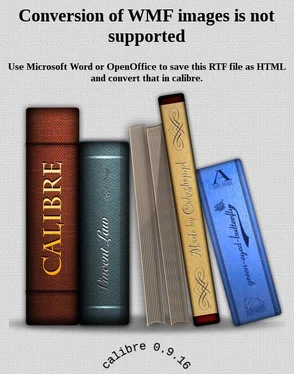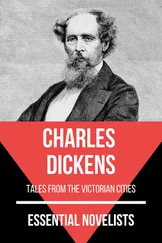Charles Dickens - Speeches - Literary & Social
Здесь есть возможность читать онлайн «Charles Dickens - Speeches - Literary & Social» весь текст электронной книги совершенно бесплатно (целиком полную версию без сокращений). В некоторых случаях можно слушать аудио, скачать через торрент в формате fb2 и присутствует краткое содержание. Жанр: Классическая проза, на английском языке. Описание произведения, (предисловие) а так же отзывы посетителей доступны на портале библиотеки ЛибКат.
- Название:Speeches: Literary & Social
- Автор:
- Жанр:
- Год:неизвестен
- ISBN:нет данных
- Рейтинг книги:5 / 5. Голосов: 1
-
Избранное:Добавить в избранное
- Отзывы:
-
Ваша оценка:
- 100
- 1
- 2
- 3
- 4
- 5
Speeches: Literary & Social: краткое содержание, описание и аннотация
Предлагаем к чтению аннотацию, описание, краткое содержание или предисловие (зависит от того, что написал сам автор книги «Speeches: Literary & Social»). Если вы не нашли необходимую информацию о книге — напишите в комментариях, мы постараемся отыскать её.
Speeches: Literary & Social — читать онлайн бесплатно полную книгу (весь текст) целиком
Ниже представлен текст книги, разбитый по страницам. Система сохранения места последней прочитанной страницы, позволяет с удобством читать онлайн бесплатно книгу «Speeches: Literary & Social», без необходимости каждый раз заново искать на чём Вы остановились. Поставьте закладку, и сможете в любой момент перейти на страницу, на которой закончили чтение.
Интервал:
Закладка:
"But," said a gentleman to me the other day, "no doubt Mr. Paxton is a great man, but there is one objection to him that you can never get over, that is, he is a gardener." Now that is our case to-night, that he is a gardener, and we are extremely proud of it. This is a great age, with all its faults, when a man by the power of his own genius and good sense can scale such a daring height as Mr. Paxton has reached, and composedly place his form on the top. This is a great age, when a man impressed with a useful idea can carry out his project without being imprisoned, or thumb-screwed, or persecuted in any form. I can well understand that you, to whom the genius, the intelligence, the industry, and the achievements of our friend are well known, should be anxious to do him honour by placing him in the position he occupies to-night; and I assure you, you have conferred great gratification on one of his friends, in permitting him to have the opportunity of proposing his health, which that friend now does most cordially and with all the honours.
SPEECH LVI
The Royal Academy Dinner. London, May 2, 1870
On the occasion of the Second Exhibition of the Royal Academy in their new galleries in Piccadilly, the President, Sir F. Grant, and the council gave their usual inaugurative banquet, and a very distinguished company was present. The dinner took place in the large central room, and covers were laid for 200 guests. The Prince of Wales acknowledged the toast of his health and that of the Princess, the Duke of Cambridge responded to the toast of the army, Mr. Childers to the navy, Lord Elcho to the volunteers, Mr. Motley to "The Prosperity of the United States," Mr. Gladstone to "Her Majesty's Ministers," the Archbishop of York to, "The Guests," and Mr. Dickens to "Literature." The last toast having been proposed in a highly eulogistic speech, Mr. Dickens responded.
MR. PRESIDENT, your Royal Highnesses, my Lords and Gentlemen, - I beg to acknowledge the toast with which you have done me the great honour of associating my name. I beg to acknowledge it on behalf of the brotherhood of literature, present and absent, not forgetting an illustrious wanderer from the fold, whose tardy return to it we all hail with delight, and who now sits - or lately did sit - within a few chairs of or on your left hand. I hope I may also claim to acknowledge the toast on behalf of the sisterhood of literature also, although that "better half of human nature," to which Mr. Gladstone rendered his graceful tribute, is unworthily represented here, in the present state of its rights and wrongs, by the devouring monster, man.
All the arts, and many of the sciences, bear witness that women, even in their present oppressed condition, can attain to quite as great distinction, and can attain to quite as lofty names as men. Their emancipation (as I am given to understand) drawing very near, there is no saying how soon they may "push us from our stools" at these tables, or how soon our better half of human nature, standing in this place of mine, may eloquently depreciate mankind, addressing another better half of human nature sitting in the president's chair.
The literary visitors of the Royal Academy to-night desire me to congratulate their hosts on a very interesting exhibition, in which risen excellence supremely asserts itself, and from which promise of a brilliant succession in time to come is not wanting. They naturally see with especial interest the writings and persons of great men - historians, philosophers, poets, and novelists, vividly illustrated around them here. And they hope that they may modestly claim to have rendered some little assistance towards the production of many of the pictures in this magnificent gallery. For without the patient labours of some among them unhistoric history might have long survived in this place, and but for the researches and wandering of others among them, the most preposterous countries, the most impossible peoples, and the absurdest superstitions, manners, and customs, might have usurped the place of truth upon these walls. Nay, there is no knowing, Sir Francis Grant, what unlike portraits you yourself might have painted if you had been left, with your sitters, to idle pens, unchecked reckless rumours, and undenounced lying malevolence.
I cannot forbear, before I resume my seat, adverting to a sad theme (the recent death of Daniel Maclise) to which his Royal Highness the Prince of Wales made allusion, and to which the president referred with the eloquence of genuine feeling. Since I first entered the public lists, a very young man indeed, it has been my constant fortune to number amongst my nearest and dearest friends members of the Royal Academy who have been its grace and pride. They have so dropped from my side one by one that I already, begin to feel like the Spanish monk of whom Wilkie tells, who had grown to believe that the only realities around him were the pictures which he loved, and that all the moving life he saw, or ever had seen, was a shadow and a dream.
For many years I was one of the two most intimate friends and most constant companions of the late Mr. Maclise. Of his genius in his chosen art I will venture to say nothing here, but of his prodigious fertility of mind and wonderful wealth of intellect, I may confidently assert that they would have made him, if he had been so minded, at least as great a writer as he was a painter. The gentlest and most modest of men, the freshest as to his generous appreciation of young aspirants, and the frankest and largest-hearted as to his peers, incapable of a sordid or ignoble thought, gallantly sustaining the true dignity of his vocation, without one grain of self-ambition, wholesomely natural at the last as at the first, "in wit a man, simplicity a child," no artist, of whatsoever denomination, I make bold to say, ever went to his rest leaving a golden memory more pure from dross, or having devoted himself with a truer chivalry to the art goddess whom he worshipped.
These were the last public words of Charles Dickens.
Интервал:
Закладка:
Похожие книги на «Speeches: Literary & Social»
Представляем Вашему вниманию похожие книги на «Speeches: Literary & Social» списком для выбора. Мы отобрали схожую по названию и смыслу литературу в надежде предоставить читателям больше вариантов отыскать новые, интересные, ещё непрочитанные произведения.
Обсуждение, отзывы о книге «Speeches: Literary & Social» и просто собственные мнения читателей. Оставьте ваши комментарии, напишите, что Вы думаете о произведении, его смысле или главных героях. Укажите что конкретно понравилось, а что нет, и почему Вы так считаете.












